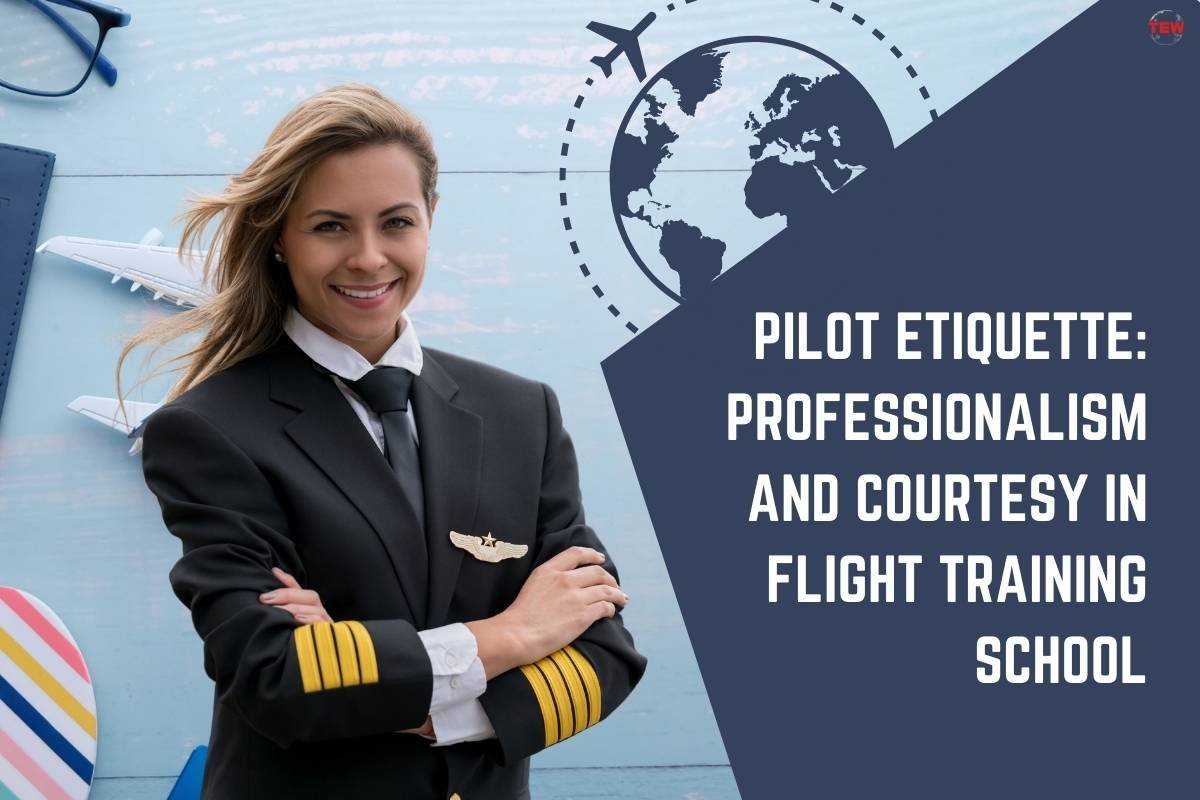Flight training schools are places where aspiring pilots come to fulfill their dreams. They’re not only about learning the aspects of flying; they also serve as a platform for budding aviators to develop crucial skills in professionalism and courtesy. In this guide, we will delve into the significance of pilot etiquette within flight training schools and how it influences growth and career advancement.
The Importance of Professionalism in Flight Training
1. Cultivating a Positive Learning Atmosphere
Maintaining professionalism within flight training schools is essential for fostering a learning environment. Students benefit greatly when surrounded by instructors and fellow trainees who prioritize professionalism. Such an environment promotes productivity, minimizes distractions, and enables students to concentrate on honing their skills.
2. Nurturing Strong Work Ethic
A flight training school that emphasizes professionalism lays the foundation for cultivating work ethic in future pilots. This work ethic goes beyond punctuality, as it encompasses dedication, discipline, attention to detail, and an unwavering commitment to safety procedures – all qualities of pilots.
3. Instilling Respect for Authority
Respect for authority is crucial in any aviation setting. Flight training institutions provide an opportunity for aspiring pilots to learn and develop their skills in respecting authority figures, like instructors, senior pilots, or administrators. Teaching trainees how to navigate these relationships with respect lays the groundwork for their growth throughout their careers.
Maintaining Courtesy in Flight Training
1. Effective Communication Skills

Clear and effective communication between pilots, air traffic controllers, instructors, and fellow crew members is crucial in flight training. Showing respect for each other’s time by communicating actively, listening without interruption, and speaking fosters better teamwork among aviation professionals – an essential quality needed during real-world flight operations.
2. Embracing Cultural Sensitivity
Flight training schools often cater to students from different backgrounds. Embracing sensitivity helps create a welcoming environment for every student. Acknowledging and respecting differences in customs, language, and traditions builds trust among trainees while preparing them to collaborate with crews during their flying careers.
3. Proactive Problem Solving
Courtesy goes beyond politeness – it also involves being proactive in addressing any problems that may arise. Flight training can be demanding with encounters in difficult situations.
Demonstrating behavior through listening, problem-solving instead of blaming, and respectfully asking questions fosters an environment of open communication. It creates a space where challenges can be overcome effectively.
Personal and Professional Development
1. Improving Emotional Intelligence

Flight training pushes individuals out of their comfort zones, forcing them to adapt to environments, perform under pressure, and make sound decisions. By practicing professionalism and showing courtesy towards others, students develop intelligence. This ability allows pilots to recognize emotions in themselves and others, preparing them for tasks, coordinating teamwork within limited spaces, and handling conflicting information during flights.
2. Establishing Relationships
Flight training schools offer opportunities to build long-lasting connections within the aviation industry. Pilots often form relationships that extend beyond graduation by displaying professionalism and courtesy in these settings. It’s not uncommon for former classmates or instructors to recommend job openings or provide guidance throughout a pilot’s career.
3. Cultivating a Positive Reputation among Peers
Developing a reputation as an aviator brings long-term benefits after completing initial training. When fellow aviators hold each other in high regard, they are more likely to raise awareness of job opportunities or recommend peer pilots when needed.
Conclusion
Learning pilot etiquette is crucial for aspiring aviators. It equips them with skills that will shape their future as both students mastering flying techniques and professional airline pilots who navigate the challenges of flights amid the constant pressures from passengers. Being professional while in flight or showing courtesy at lounges and other aviation facilities is important.
It helps pilots function effectively, ensuring they fulfill their responsibilities and prepare themselves for the workplace by cultivating universally recognized professionalism across different nations and flight modes. This kind of professionalism is akin to maintaining aviation logs, where attention to detail and precision are expected during every visit or inspection.




